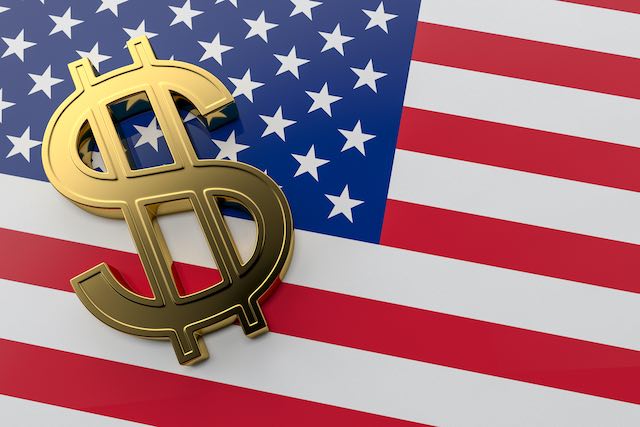To quote the O’Jays, “Money, money, money, money.” Apart from union officer elections, if there is anything that is more of an internal union issue than union dues allotments, I haven’t seen it.
There has been a significant amount of discussion in Congress lately regarding union dues. The proposed Paycheck Protection Act (H.R. 4971) provides that “An agency may not deduct any amount from the pay of an employee for labor organization dues, fees, or political contributions.”
Over the years, with few exceptions, unions have traditionally supported, with substantial monetary contributions, Democratic candidates. It’s not surprising, therefore, that House Republicans proposed the legislation. While I see no value in Congress politicizing the union dues process (note the political contributions part of the bill), I do see value in reevaluating the 45-year-old requirement in the law because, in this century, it’s no longer needed.
Unions have taken issue with agencies, and in some instances their own union locals, over union dues. With union dues, and how those dues are used and accounted for being a core internal union matter, why should any agency be the middleman between a bargaining unit employee and the money they “elect” to pay their union?
Under Section 7115 of the Federal Service Labor-Management Relations Statute (Statute), if an agency receives a written assignment that authorizes it to deduct payment for union dues, then the agency must honor the allotment at no cost to the union and the employee election to pay dues can’t be revoked for “a period of 1 year.” That 1-year period requirement in the law, and the processes negotiated in collective bargaining agreements, have put agency officials in the unenviable position of policing the 1-year dues payment requirement, not to mention the twists and turns over the years on what the 1-year requirement really is. Employees who no longer want to be members of the union, either because of their internal union policies, politics, or union leadership, when discussing their desire to terminate their membership early with agency officials, point to the employee rights part of the Statute (5 U.S.C. section 7102) which provides:
“Each employee shall have the right to form, join, or assist any labor 0rganization, or refrain from any such activity, freely and without fear of penalty or reprisal and each employee shall be protected in the exercise of such right.”
A compelling argument could be made that if employees are forced to pay union dues when they no longer want to be union members, then they really don’t have the right to “freely and without penalty” refrain from being union members.
The other part of the statutory union dues requirement is the mandate to agencies to, “at no cost” to the union, process the dues allotments. Because of the statutory dues allotment requirement, agencies had to establish infrastructures to accommodate the processing of allotment forms, payments to unions, and the associated remittance reports to the 2000-plus union locals, in the Federal government.
While there is no cost to the union, there are significant costs to the agencies. Unlike other financial allotments for mortgages, car payments, etc., union dues procedures are negotiated into collective bargaining agreements. Those procedures usually require coordination with the local unions and the involvement of local human resources specialists, payroll clerks, and payroll service providers (e.g., National Finance Center, Defense Finance and Accounting Service).
Arguably, this co-dependent process may have been needed when the Statute was created, and Federal-sector unions were basically in their recognition infancy. Times have changed, however, and a more modern approach, one that removes Federal agencies from their middleman role, is needed.
This idea really isn’t as radical as one might think. In fact, at least one union, the American Federation of Government Employees (AFGE), seems to have cracked the code already.
Several years ago, AFGE developed and marketed its E-Dues initiative which, according to their website, is an alternative dues collection system built and operated by AFGE. AFGE E-Dues collects membership dues through bank draft or credit card payments, to guard against assaults on paycheck dues deduction. As stated by AFGE, E-Dues puts union members, not agency representatives, in control of their dues dollars.
I must give it to AFGE, as this proactive approach to dues collection, if adopted by all unions, would seem to be a more effective and efficient process for the government, unions, employees, and the taxpayer. This generation of federal employees is more technologically literate than ever; they probably have never seen the inside of a bank. This is the Zelle and Venmo generation that pays their bills by setting up their own electronic payment methods. No paper forms, no go-between, just the electronic routing of funds directly to the recipient.
So, tell me again: why does any agency need to be involved in the union dues deduction process?




